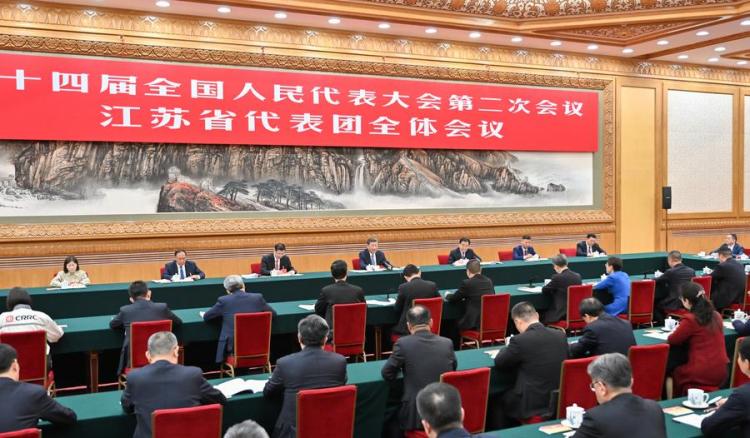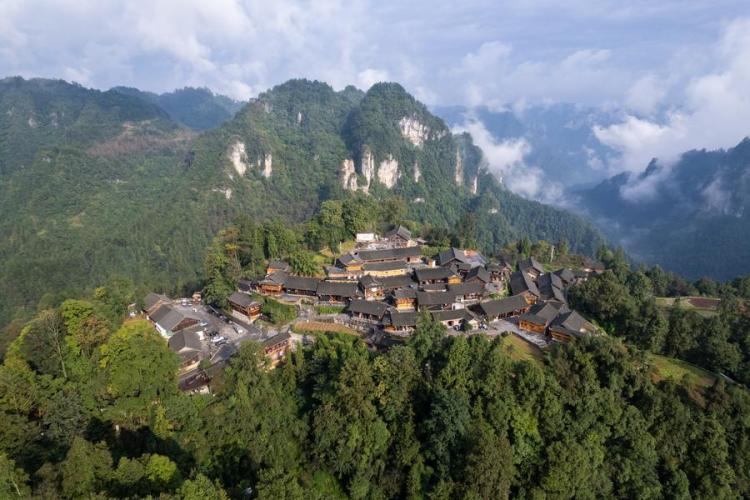
Xi is well-acquainted with the challenging situation faced by private enterprises. He instructed the establishment of a private economy development bureau under the country's top economic planner to provide assistance to private enterprises facing difficulties.
Xi also emphasized the need to promote financial reforms to facilitate financing for private enterprises. He stressed the importance of encouraging private capital to enter industries and sectors where entry is not explicitly prohibited by laws and regulations.
Under Xi's instruction, the system of a negative list for market access was comprehensively implemented, allowing entry into areas not explicitly prohibited by the list. By the end of 2023, the number of registered business entities nationwide reached 184 million, more than three times the figure in 2012.
From 2012 to 2023, the number of private enterprises in China more than quadrupled, and the proportion of private enterprises in the total number of enterprises increased from less than 80 percent to over 92 percent.
During that period, privately-owned banks received approval for establishment, a high-speed rail controlled by private capital began operation, private investment was permitted to enter the oil and gas exploration and production sector, and a private rocket company achieved success in launching a rocket from the sea.
While reinforcing the Party's leadership, Xi initiated market-oriented reforms for state-owned enterprises (SOEs). In 2017, China Unicom, as the first centrally-administered SOE in the telecommunications industry to open up to private capital, introduced 14 strategic investors, including internet titans Tencent, Baidu, JD.com, and Alibaba, in the "mixed-ownership reform."
A three-year action plan for SOE reform converted SOEs into limited liability companies or companies limited by shares. Some 38,000 SOEs established boards of directors.
International media have noticed that China's reform has been advancing in step with changes in the situation. A trade war waged by the United States, the global pandemic, and increased geopolitical tensions have tested the resilience of China's economy. The country is also transforming its economic development model.
Xi has led China to accelerate building the new development pattern, which takes the domestic market as the mainstay while allowing domestic and international markets to reinforce each other.
A key support for this strategy is the establishment of a unified national market. To achieve this, a series of reforms are being implemented to eliminate local protectionism and dismantle regional barriers.
Xi has made "institutional opening-up" a priority. In one such move, China has lifted foreign ownership limits for securities companies, management companies of securities investment funds, futures companies, and life insurance companies.
Meanwhile, he is cautious about disorderly capital expansion, market manipulation, and pursuit of exorbitant profits in certain areas. He said it harms the interests of the people.
He proposed setting "traffic lights" for capital flows, ensuring that "financial magnates" do not act unscrupulously while still allowing capital to function properly as a production factor.
This indicates that China's reform is no longer solely focused on growth but considers a more balanced approach.
Under Xi's leadership, China has effectively addressed risks in shadow banking and internet finance. Efforts have been made to resolve debt risks associated with local governments and major enterprises like China Evergrande Group. These moves safeguarded the interests of the people and ensured the smooth operation of the market.
MAKING PEOPLE'S PRIORITIES HIS OWN
Xi emphasizes that the ultimate goal of reform is for the people's well-being. He has pledged to make people's priorities his own and act on their wishes. This is different from the "capital first" stance.
He recognized that after more than 30 years of reform and opening-up, the principal contradiction facing Chinese society had undergone significant changes. "What we now face is the contradiction between unbalanced and inadequate development and the people's ever-growing needs for a better life," Xi said in 2017.
In response to this change, he advocates for coordinated and shared development, and is committed to achieving Deng's vision of "common prosperity."
When Xi assumed the Party's top post, there were significant disparities between China's eastern and western regions, and wealth inequality was severe.
He has transformed the poverty relief strategy, implementing "targeted poverty elimination." In less than 10 years, China eradicated absolute poverty in rural areas, a problem that had persisted for thousands of years in the country.

In April 2012, just months before Xi took the top office, a tragic incident occurred in Beijing's neighboring Hebei Province, where a farmer cut off his leg by himself due to illness and concerns over unaffordable medical treatment. Many impoverished farmers had few ways to deal with serious illnesses at that time.
Xi has initiated reforms in the rural healthcare system to ensure that people in the vast rural areas have access to medical treatment. The campaigns have significantly reduced cases of illness-induced poverty. Almost all low-income people and individuals just lifted out of poverty in rural areas now have medical insurance.
China's reforms started in rural areas in the 1970s, and Xi's reform initiatives regarding agriculture, rural areas, and farmers encompass a broader range of changes.
He has established a sound mechanism for stable grain production to ensure that "China's food supply remains firmly in its own hands," improved the village business environment, and promoted rural revitalization across the board.
In the early 2000s, Xi proposed in an academic paper bold reforms to the household registration system to eliminate various social and economic disparities as well as the division of the urban and rural labor markets caused by the system.
At that time, there was considerable controversy over whether or not to abolish household registration restrictions.
In 2016, the central government rolled out a plan to grant urban residency to some 100 million people from rural areas and other permanent residents without local household registration, which was fulfilled ahead of schedule.
During an inspection trip to Shanghai in 2023, Xi visited the apartments where migrant workers lived. He was happy to learn that migrants were settling down in the metropolis.
"Great! Stay, settle down, and strive for a better life," he said.
Under Xi's leadership, China scrapped the reeducation-through-labor system, which had been in operation for over half a century.
In response to demographic changes, China has adjusted its population and family planning policies accordingly. Reforms have been carried out to ensure better and more equitable education. Additionally, Xi has spearheaded the establishment of the world's largest social security system and initiated reforms in basic elderly care services.
With a belief that "people's health is the primary indicator of modernization," Xi called for studying and promoting the practice in the city of Sanming in Fujian to address the challenge of healthcare reform.
Xi advocated for the comprehensive elimination of markups on drugs and medical consumables that had been in place for over 60 years, reducing patient healthcare costs. Government departments acted on his call and formed a work team to negotiate drug and consumable prices with pharmaceutical companies.
In a widely circulated online video of price negotiation in 2021, representatives from the National Healthcare Security Administration insisted that "no minority group of patients should be abandoned," and managed to cut the price of a life-saving drug for a rare disease from about 700,000 yuan per shot to 33,000 yuan per shot after eight rounds of intense negotiations.
This drug was then included in China's medical insurance catalog, igniting hope for over 30,000 patients nationwide. Similar price cuts for hundreds of drugs have cumulatively saved the public some 500 billion yuan in medical expenses.
Xi has a fascination with history and culture and is a frequenter of museums, having visited almost all of the museums in Beijing during his childhood.
Over the past decade, China has significantly increased funding for cultural relics preservation, sparking a cultural and museum boom nationwide. There are over 3,300 public libraries and more than 10,000 cultural centers and museums nationwide. Tickets for museums are often in high demand, especially during holidays.
Xi's reform in the cultural sector emphasizes enriching the "spiritual world" of the people as an essential requirement for Chinese modernization. This involves refining cultural industry planning and policies, and nurturing new cultural business forms and cultural consumption patterns.
As a result, the film industry has seen fast development in recent years. The number of cinema screens in the country has multiplied from about 13,000 in 2012 to over 86,000 now, the highest on Earth.
Another ground-breaking reform led by Xi occurred in the ecological domain.
When Xi took office as the general secretary in 2012, environmental pollution was one of the most common complaints among the public. At the start of that year, a river in Guangxi Zhuang Autonomous Region reported cadmium pollution, endangering the drinking water safety of over a million people. Several high-profile "not-in-my-backyard" incidents occurred across the country during the year.